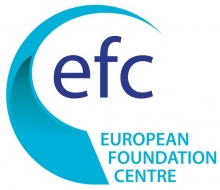EFC’s latest mapping provides the most comprehensive study to date of environmental funding by European foundations

Report
February 2019
European Foundation Centre
Fourth volume of the mapping analyses over 4,000 grants worth €583 million and highlights key findings from both the supply side and the demand side
Brussels, 18 February 2019 – Today the European Foundation Centre (EFC) launched the fourth edition of its mapping of environmental funding, the most comprehensive study to date into the state of European philanthropic funding for environmental issues.
The fourth edition covers 87 foundations and 4,093 environmental grants across 131 countries, totaling €583 million in funding in 2016. These grants represent the ‘’supply side’’ of the market. For the first time the mapping has also sought to understand the ’demand side’ of the environmental grants market, by surveying 95 European environmental organisations in 31 countries.
Some of the key highlights include a shift in thematic focus for grantmaking in Europe compared to 2014, an 8.6% increase in overall environmental grantmaking, a severe lack of funding for EU-wide work (in contrast to the 80% of European environmental legislation which is formulated in the EU institutions), and lastly the huge disparity in the availability of foundation grants in different countries in Europe.
‘’Climate & atmosphere’’ has risen to become the most funded thematic area, receiving 14.8% of funding, reversing a decline observed in prior editions, and superseding ‘’biodiversity & species preservation’’ which follows closely behind at 14.6%. Receiving 8.7% of total funding “coastal & marine ecosystems’’ was another thematic area representing major growth, with total giving in this category up 66.9% compared to 2014. Part of this growth results from an increased focus by foundations on marine plastic pollution. Many of the systemic drivers of environmental damage such as over-consumption, trade and finance policies, and approaches to transport, continue to receive very little funding from foundations.
In his foreword, Luca Jahier, President of the European Economic and Social Committee (EESC) welcomed the EFC report as ‘’an important resource for reflecting on funding gaps and new opportunities to generate more knowledge as we tackle these urgent issues.’’ Sustainable development is of the highest priority for the EESC and with the utility of mappings such as this Mr Jahier has stated that ‘’foundations could play an important role in an agenda for change.’’
As with the previous editions, the mapping is intended to raise the profile of environmental funders, build understanding of the sector, improve coordination, and provide analysis that informs discussion of effectiveness in environmental grantmaking.
For further information go to: https://www.efc.be/.
Download report:




